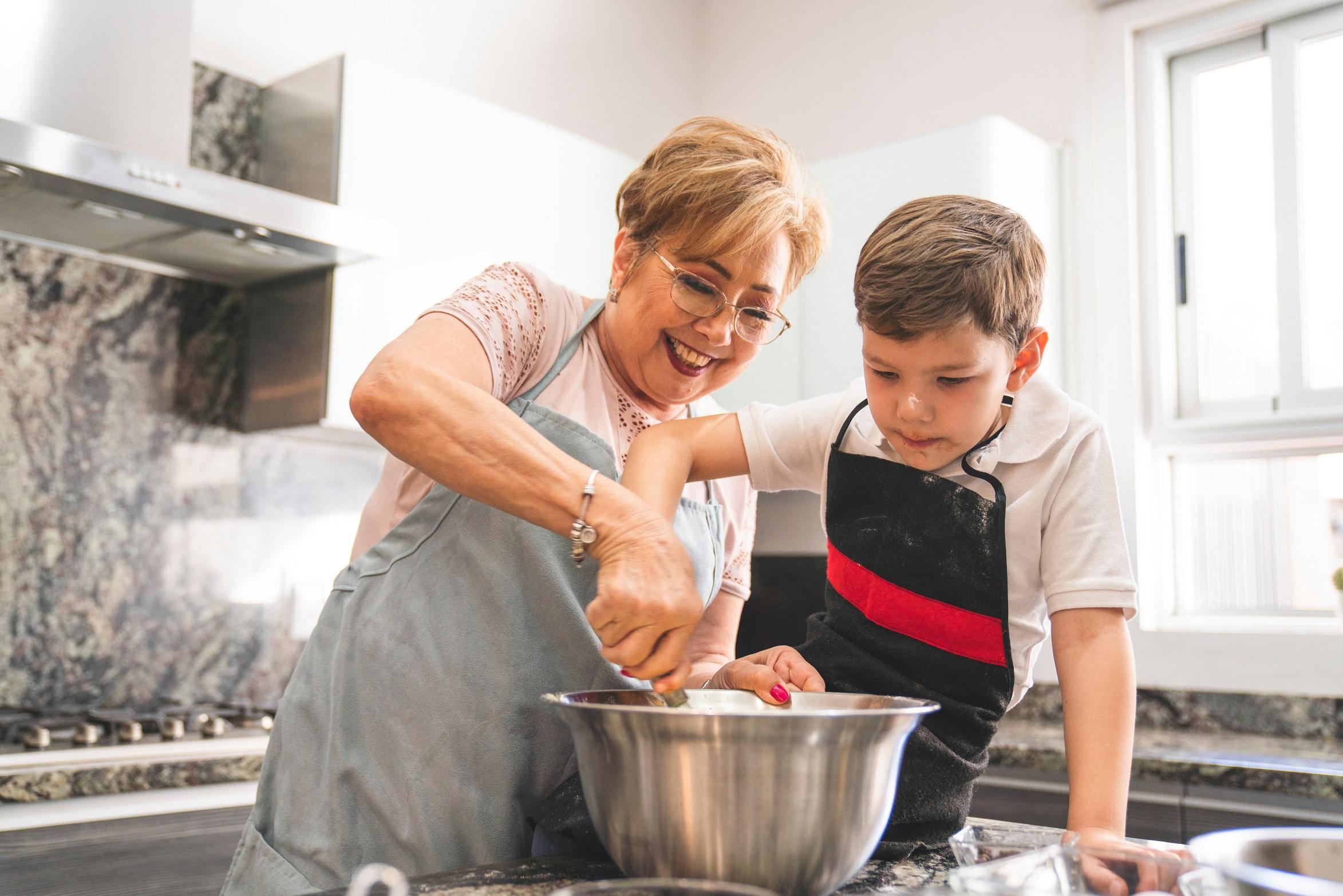


How Can I Encourage My Kids To Cook?
9 August 2023
Whatever their age, kids can learn a lot from cooking, and research has shown that getting involved with the food preparation process can help encourage them to try new foods. Learning to cook will benefit them their entire lives and young people who have culinary skills tend to eat more healthily than those who don’t. At first they may be more of a hindrance than a help, but with practice, you could have your very own sous chef to make meal preparation a breeze.
Start them young
Have your baby in the kitchen where they can see you while you cook, and talk to them about what they’re doing. Once they’re a toddler, you can get them involved with safe tasks like using biscuit cutters on dough, decorating a cake or stirring ingredients in a plastic bowl. It may get messy, so get them to wear an apron or old clothes, and you may want to cover the floor. As they get older, you can start giving them more tasks, being careful to supervise them with anything that could be dangerous.
Get them their own kitchen supplies
Something as simple as a child-sized wooden spoon for your child will make them feel special and help encourage them to join in. You can get recipe books for children, with simple, tasty dishes and bakes to try. Getting an apron for your child in a design they like is both practical and makes it more fun.
Make it fun
Sing songs while you cook, or put music on and sing along. There are songs and rhymes you can find online to sing while you cook. Make the most of the quality time together by talking to your kids about their day, particularly if it’s after school. There are practical science experiments you can do in the kitchen, which can help you explain some of the principles of cooking to your children - for example watching salt and sugar dissolve in water, and combining baking soda with vinegar.
Make it colourful
Kids love bright colours, so this is a great way to introduce them to a range of vegetables such as aubergine, peppers, tomatoes, courgettes, carrots and sweet potatoes. Get them involved in the presentation of the food. You could try making faces or animal shapes out of slices of vegetables and pieces of fruit on plates. Let them experiment with making their own salads and sandwiches, even if the ingredient combinations seem odd to you.
Keep it safe
Teach your kids the all-important kitchen safety rules. Keep knives out of reach until they’re old enough to use them safely, and then supervise them. Make sure they understand that the oven - and anything that comes out of it - will be extremely hot. If you open any tins, keep the empty tins and lids somewhere the kids can’t reach them.
By making sure tasks are age-appropriate and keeping cooking fun, you can inspire your children to join in. As they get older, they can become more independent and create delicious meals and tasty baked goods, giving them a sense of achievement, along with some valuable life skills.
